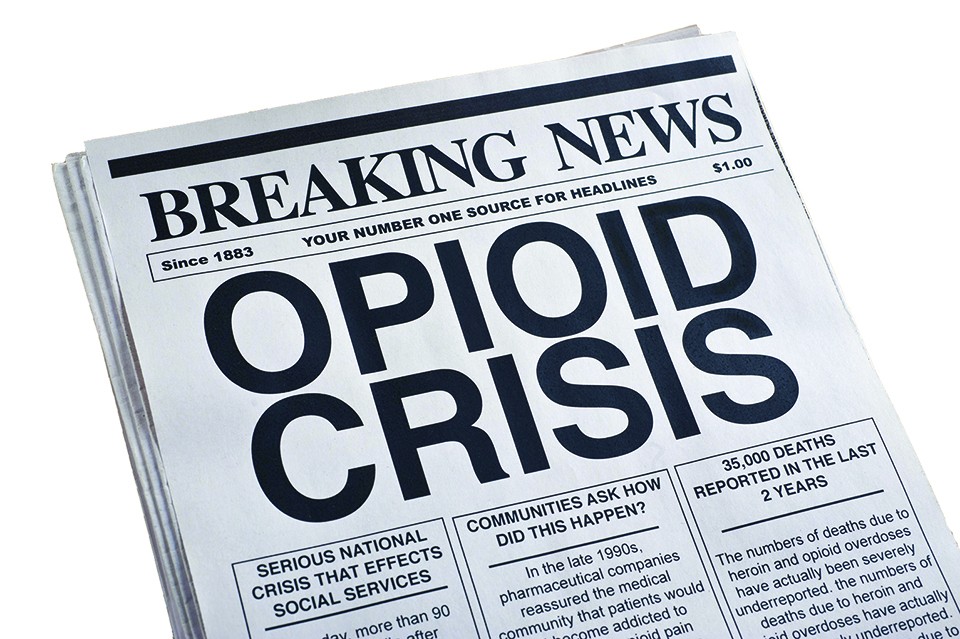Drug companies impeded DEA opioid investigations in San Luis Valley

WASHINGTON, D.C. — A recent Washington Post expose has named the drug manufacturing firm McKesson Corporation as a participant in efforts to block the Drug Enforcement Agency (DEA) from suspending drug company operations nationwide when companies violated the law.
In December of 2017, McKesson was cited in a CBS 60 Minutes episode, investigated in conjunction with the Washington Post, as literally getting away with murder in saturating the San Luis Valley with opioids. McKesson, headquartered in San Francisco, Calif., is the nation’s largest drug manufacturer, followed by AmerisourceBergen and Cardinal Health.
According to the 2017 report: “DEA investigators discovered McKesson was shipping the same quantities of opioid pills to small-town pharmacies in Colorado’s San Luis Valley as it would typically ship to large drugstores next to big city medical centers.” Twenty-nine-year DEA veteran Helen Kaupang, now retired commented: “McKesson [was] supplying enough pills to that community to give every man, woman and child a monthly dose of 30 to 60 tablets…I found it shocking.”
McKesson raked in billions distributing addictive opioids over the years, producers noted in the 60 Minutes segment. But the DEA was unable to prosecute the company despite the growing opioid epidemic because the Department of Justice and Congress cut a backdoor deal with McKesson in 2014.
Newly unsealed documents from a Cincinnati, Ohio civil lawsuit, filed on behalf of more than 2,000 cities, towns and counties in federal court in Cleveland, made known the details of behind-doors maneuverings to strip the power from the DEA to successfully suspend drug company operations when violations occurred.
It is the intent of those filing the lawsuit to hold the prescription drug industry accountable for the opioid epidemic. The plaintiffs’ attorneys have cited the Racketeer Influenced and Corrupt Organizations (RICO) Act in filing their civil case, a law intended for use in cases involving criminal organizations.
Drug company lawyers have tried to make a laughingstock of the RICO defense in an attempt to have the case dismissed before it heads to trial Oct. 21.
DEA accused of overreach
Some of the information revealed in the course of the court hearing was the claim by major drug companies that the DEA was overstepping its bounds in pursuing investigation and prosecution of suspicious orders of opioid pills. These pills, numbering in the millions, were finding their way into the black market, according to the Post article.
The drug companies fought back by supporting a measure known as the Marino Bill, passed by Congress in 2016. The bill ensured patient access to the drugs, something strongly supported by the companies’ representative association, the Healthcare Distribution Alliance.
The legislation was sponsored by former Pennsylvania Republican congressman Tom Marino, who had it in for a hard-hitting DEA agent named Joe Rannazzisi. It was Rannazzisi who had led many of the charges into suspicious opioid product territory and who had appeared on the 2017 60 Minutes segment.
The attorney working on behalf of the drug companies to pass the bill, Linden Barber, had previously been assigned as legal counsel for Rannazzisi by the DEA. He knew all the DEA’s strategies and so informed his new clients. He would later become senior vice-president of Cardinal Health.
Marino Bill
The bill as proposed laid out a high standard for DEA officials to meet before proceeding with suspicious activity declarations. Instead of simply proceeding on the premise that such activity posed an “imminent danger to public health or safety,” the new bill defined imminent danger as “a significant and present risk of death or serious bodily harm.”
According to what the Post was told by former DEA agents and agency lawyers, it would be almost impossible to demonstrate that that some drug company thousands of miles from a particular community constituted a “present” risk. The purpose of the bill was to specify when the DEA could take action against a drug company, but also contained provisions that allowed drug company notification so company officers could take corrective action before the DEA could revoke or suspend their license.
It would later be the Healthcare Distribution Alliance who in April of 2015 would hire a crisis communications company, APCO Worldwide, to create a 44-page “Crisis Playbook.” The playbook provided responses for the industry in several given situations.
During legislative hearings on the bill, the Ohio court material shows that the drug companies were able to brief the legislators on what questions to pose to the DEA. An internal email shows McKesson actively collaborated with a Texas congressman to help pass the legislation using the APCO “Crisis Playbook,” then geared to conduct a “targeted media outreach.”
McKesson on complicity
“Our nation’s drug supply chain is highly complex, so we routinely engage with elected officials and regulators to share our knowledge, experience and occasionally, recommendations,” McKesson told the Washington Post. “There is nothing inappropriate about companies communicating with policymakers in a transparent, law-abiding way to foster a more effective working relationship with the government.”
Now, the Washington Post notes, a move is on to repeal the Marino Bill, requested in 2018 by U.S. Assistant Attorney General Stephen Boyd. Congress is waiting for further instructions from the Department of Justice on how to rewrite the bill.
The Post reports that a long list of individuals refused to be interviewed for the article. These include former congressman Tom Marino (R-Pa.), who first proposed the bill; former acting DEA administrator Chuck Rosenberg, whose agency surrendered to the pressure; former attorney general Loretta E. Lynch, whose department did not stand in the way of the legislation; and, finally, then-President Barack Obama, who signed it into law.



